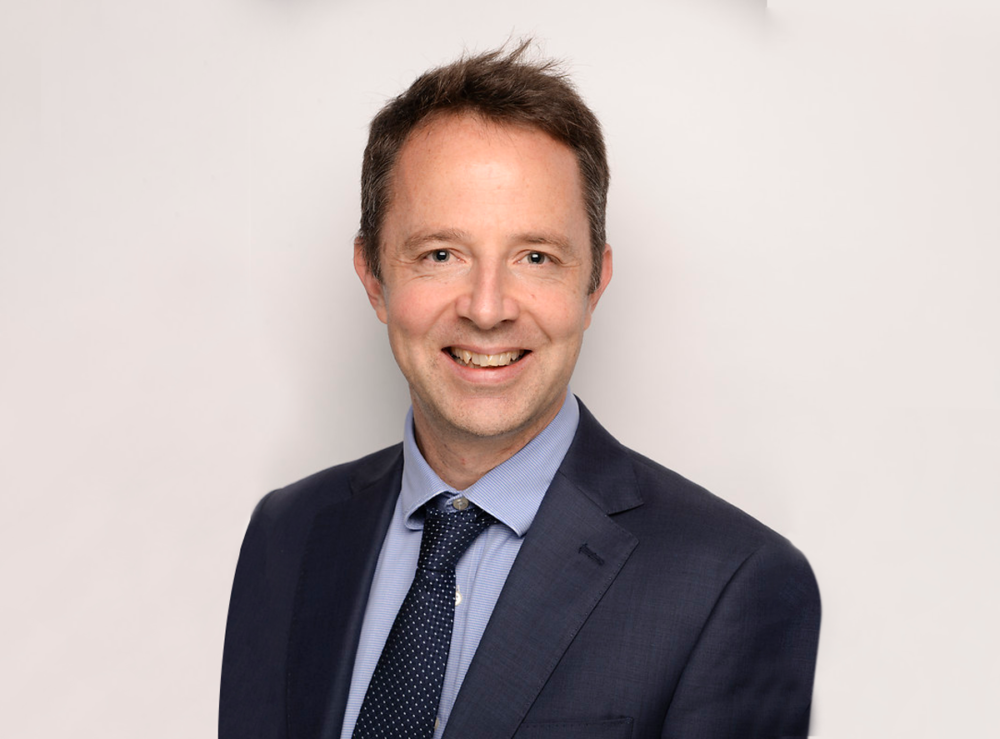Campbell Douglas was appointed as the Principal & CEO of GEMS Wellington Academy – Al Khail in August 2020. A graduate of the University of Auckland, Campbell holds a Bachelor’s degree in Music and Masters in Educational Administration.
Prior to joining GEMS Wellington Academy – Al Khail, Douglas spent nine years in China where he led two schools for Dulwich College International, one in Zhuhai and one in Suzhou. At both of these schools the focus was very much on achieving outstanding academic results and ensuring placements at the world’s top universities for all students.
Prior to his roles in China, he was Deputy Principal for a large urban secondary school in New Zealand with portfolio responsibility for curriculum, assessment and reporting, and ensuring the best possible outcomes for indigenous and minority cultures.
Outside of school, Douglas, a firm believer in evidence-informed approaches to education, enjoys music, having previously conducted New Zealand productions of Phantom of the Opera, CATS and The Secret Garden, as well as having a research interest in Pacific Island culture, in particular, Samoa.
Douglas resides in Dubai with his wife, Marama, who is an Early Childhood teacher, daughter Holly and son Charlie.
Douglas spoke to Education Middle East about his journey as an educationist, some of the best global practices in education and the status of music in education.
You have led schools in New Zealand, China and the UAE – can you tell us about some of the best practices in education in all these locations?
I have had the privilege of leading schools in New Zealand, China and the UAE and each context has not only presented itself with wonderful opportunities but a unique chance to look at what makes education ‘work’ in each of these contexts and to observe what best practice means in each of these areas of the world.
I think the first thing that stands out in the New Zealand context is the integration of the outdoors in learning. As a sparsely populated country with an amazing array of stunning natural outdoor environments and the benefits that it brings, particularly in relation to well-being and mental health, are many and varied. With easy access to bush, lakes, mountains, camping, the ocean and vast landscapes, outdoor education is a given for every New Zealand child from Kindergarten upwards. These experiences are not an add on at each stage of the education process but integrated throughout the curriculum in all different subject areas. While all schools around the world offer experiences outside the classroom and opportunities for students to have outdoor experiences, I think New Zealand is unmatched in its ability to fully immerse students in these experiences.
New Zealand also has a world-leading curriculum document that allows schools to shape their curriculum to their context and needs. The vision, values, principles and key competencies are all very clear, as are the achievement objectives for each learning area. However, it is up to each individual school to ensure the curriculum document works for them and their context. How each of these aspects is shaped is in the hands of schools and their communities – this leads to a real focus on personalisation and ensuring the needs of individual students are met at a more local level.
The rise of China, in particular, Shanghai, Hong Kong and Macau, in recent years in PISA (Programme for International Student Assessment) assessments is in no small part due to the focus on effective teaching and what it looks like. While a direct and explicit instruction model is the approach used in most schools that makes learning more efficient and effective, teachers are also given the time and space to develop their craft. There is a great focus on professional learning and development. It is not unusual to see teachers in Chinese schools teaching loads of 15 hours or less a week, with the expectation that learning from and supporting others, devoting time to your own learning and, of course, giving time to individual students outside the classroom, is how the rest of the time is used. I think education systems in other parts of the world could learn a lot from China in regards to focus on teachers’ learning and them being given the resources to develop their craft as teachers.
What I think makes the UAE context so unique is inclusivity. Firstly, I’m not sure of any other country in the world where there is such a vast array of curricula to choose from. With so many different countries’ education systems represented in the educational landscape, being inclusive begins at a macro level simply by having that choice available. Then of course, there is the KHDA’s Inclusion Framework which makes a clear commitment to ensuring all students, regardless of background, learning need, or challenge can access a quality education. The focus on this in the UAE means that schools are responsible for ensuring there are pathways in place for every child, that there is a plan for them to experience success, and that they have viable options when they finish school. I think many education systems around the world could learn from the emphasis that the UAE places on inclusion and learn from the framework that ensures all children have the ability to succeed.
You have an inherent interest in music and also hold a bachelor’s degree in the subject. What do you think is the status of music in education at present?
Unfortunately, the status of music in education is very much school dependent. While the teaching of music is usually recognised in most school curriculums, the extent to which it is embedded usually depends on the passion and expertise of the teachers, the status it is given by school leadership teams and the provision of resources. Where these three aspects align, you find very strong music programmes, both curricular and extra-curricular where students have the chance to flourish. What I tell my students is that while only a very tiny percentage of students may go on to do something with their music, do not underestimate the power music has to open doors for them. If music is their passion and they are good at it, then use that as a part of the key to gain access to good universities and courses they want to do.
What are the goals you set out to achieve when you joined GEMS Wellington Academy – Al Khail?
The long-term goal for GEMS Wellington Academy Al Khail is a simple one – to make it the best British curriculum through-school in the UAE. We want to ensure that students who come to our school have an unmatched educational experience, both inside and outside the classroom, that sees them achieve outstanding outcomes in all aspects of their school life. We will achieve this by implementing our vision, which is about empowering students to aspire, create and excel in the world, that is, so that they can help build the world that will be. It’s about preparation to not only succeed and thrive in an indefinable future but to actually be the creators of it.
We have three pillars that support this aspirational vision for our students. The first of these pillars is around outstanding teaching and learning. We are a Science of Learning based school with a firm belief that if learning is about making changes happen in the brain, then teachers, at the very least, need to have an understanding of cognitive architecture and how the brain learns. As a neuroscience-based school, we implement strategies based on evidence-based research to give teaching that accelerates progress and ensures outstanding attainment is reached through an understanding of how the brain learns best.
Our second pillar is built around Social Enterprise -this is the value driver of our vision. We believe that if our students are to help build the world of tomorrow then they need to have a moral compass instilled in them that allows them to understand fairness, equity and access for all. We drive this through pillaring the United Nations Sustainable Development Goals and ensuring our students understand the importance of helping others less fortunate than themselves and that any enterprise activity that is undertaken needs to show a benefit for the common good of humanity and support a sustainable and socially driven future.
Our third pillar is Student Agency and innovation. This is ensuring our students have voice, choice and ownership during their time with us so that they leave us as self-regulating, self-determining individuals who have found their personalised pathway through being exposed to the widest range of experiences, both inside and outside the classroom, as possible.
Another goal I have is to ensure our school is very much a focus for the community. While this has been hard to achieve during the pandemic, as we slowly begin to open up, I want to make sure our school is a place where our community can gather, socialise, share, collaborate, and work together, not only for the betterment of the students in our care but for society as a whole. Centrally located in Dubai, in the heart of Dubai Hills, I very much want our school to become a place of the people, for the people, very much like a community hub where education, sports, creative endeavours, events and social interaction happen just as much outside the school day as they do during.
What do you enjoy the most about your role as the head of the school?
There are so many aspects that are enjoyable about being the Head of GEMS Wellington Academy Al Khail, it is hard to choose. I think the first would have to be seeing students excelling and achieving, regardless of the context. Of course, academic achievement is at the heart of what we do and seeing students gain excellent exam results and head off to great universities and on into the wider world to make an impact is so rewarding to see. However, school is more than just exam results and university placements, and to see students excel in all spheres of school life, whether that be in sports, the performing arts, cultural involvement, or leadership, to name a few, is also quite rewarding. Students get out of school what they put into it and I enjoy seeing students getting involved, participating and throwing themselves fully into the life of the school.
I also enjoy being part of a community and, as I said previously, establishing that community is a main goal for us. To work in partnership with parents and their children to help them succeed and planning and implementing the opportunities to make that happen is also rewarding. Our parent coffee mornings, engagement sessions, parent council meetings, information evenings and school events that have parents involved are all what make our school special and to be a part of those and ensuring community is at the heart of what we do is.
Finally, I enjoy teaching and all that the word encompasses. At its heart, education is about teaching and learning and, as a pedagogical leader, I ensure that our school is at the forefront of current evidence-based research when it comes to implementing best practice. The thing about teaching is that most things work some of the time, but by understanding your context, by evaluating the research that relates to your context, and by having all stakeholders have an input into what works for them, you can come up with some ‘best bets’ that help students learn more efficiently and more effectively. I still teach one class a week and thoroughly enjoy being with the students and being their teacher.
Where do you see the integration of technology in education in the next five years?
In 2017, investments in the edtech sector crossed $9 billion. Crunchbase, which maintains a master record of data on the world’s most innovative companies, has identified, reviewed and categorised over 2000 new edtech and educational software companies. There is a bewildering array of new edtech companies that are creating programmes for coding and robotics, software for AR and VR, content for STEM subjects, online courses for distance learning, and even early learning apps for toddlers and pre-schoolers.
In the coming five years, Edtech will impact how we create and access knowledge. Formerly, educational content was created by universities and big publishing houses. Creation of educational content is now democratised and more easily available on the net. There are numerous apps, websites and online courses that allow students to access new information. And an increasing number of educational and academic journals are available for free or at an affordable price.
New digital ecosystems and social platforms are emerging that are allowing learners to connect and collaborate in unprecedented ways. Increasingly, students will access information via the screen. Students will also have increased access to online learning. For example, our students have access to future focused online modules such as IBM Digital Nation, HP Life and Microsoft Imagine Academy – this allows them to learn about topics such as cybersecurity, cryptocurrency, coding and various other entrepreneurial skills they will need in the future.
We’ll also start to see increased use of narrow AI in digital learning. For instance, primary students at the Wellington Academy have access to CENTURY – a learning platform that uses adaptive learning to allow students to take control of their own learning both in and out of school while allowing teachers to get real-time data on progress, meaning they can quickly identify which students need support or additional challenge in lessons. This sort of educational technology will start to become increasingly widespread in the coming years.
How can teachers cope with the rapid changes in education and stay relevant to their students? Share some tips.
Edtech integration in schools will involve providing staff with the relevant training and embedding time during the school day for teachers to upskill and retrain to keep up with the advances being made.
Brain mapping and brain scanning technologies are now growing at an exponential rate and are giving us powerful insights into how the brain learns. At our school, we’re at the forefront of training our leaders and staff about the science of learning.
In addition to schools providing opportunities for professional development, it’s also important for teachers to take charge of upskilling themselves. There’s a host of useful MOOCs, microlearning platforms and valuable educational videos on the internet about current and future trends.
Another way for teachers to keep up with changes in education is to attend relevant conferences and learn from the various industry experts. It’s also important to create opportunities for teachers to share expertise and good practice. That’s one of the reasons why we organised our recent conference, TEDxGEMSWellingtonAcademyAlKhail – it gives staff and students a global platform and a wider audience to share their ideas about current and future trends in education. In fact, at his recent TEDx talk, our Primary Principal Ben Cooper spoke about precisely this: how the theory of marginal gains and the emerging microlearning culture could revolutionise professional development in the future.








